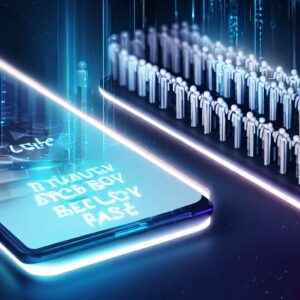 Someone once said “The Future is already here, but is not distributed equally.” The rapid advancement of advanced technologies, particularly Artificial Intelligence (AI), has brought about unprecedented opportunities and challenges to society. However, one of the most pressing concerns is the unequal distribution of these technologies. As AI continues to permeate various sectors of our lives, the disparity in access and utilization poses significant risks to individuals, communities, and societies at large. This essay explores the potential consequences and risks of embracing super advanced technology like AI without ensuring its equitable distribution.
Someone once said “The Future is already here, but is not distributed equally.” The rapid advancement of advanced technologies, particularly Artificial Intelligence (AI), has brought about unprecedented opportunities and challenges to society. However, one of the most pressing concerns is the unequal distribution of these technologies. As AI continues to permeate various sectors of our lives, the disparity in access and utilization poses significant risks to individuals, communities, and societies at large. This essay explores the potential consequences and risks of embracing super advanced technology like AI without ensuring its equitable distribution.
Exacerbating Socioeconomic Inequality
Perhaps the most immediate risk associated with the uneven distribution of advanced technology is the exacerbation of existing socioeconomic inequalities. In a world where access to AI-driven tools, information, and opportunities is concentrated in the hands of a privileged few, those without access are left at a significant disadvantage. The digital divide widens, leading to an ever-growing wealth gap and reinforcing disparities in income, education, and employment.
Job Displacement and Labor Market Inequity
AI has the potential to revolutionize industries and increase productivity. However, if the benefits of AI adoption are not shared equally, there is a real risk of widespread job displacement, particularly among vulnerable and low-skilled workers. Without adequate retraining and opportunities, certain segments of the workforce may find themselves unemployed or underemployed, deepening economic inequalities and contributing to social unrest.
Bias and Discrimination
AI systems often inherit biases present in the data used to train them. If advanced AI is predominantly developed and deployed by select groups, these biases may disproportionately affect marginalized communities. Biased algorithms can lead to discriminatory outcomes in various fields, including criminal justice, hiring, and healthcare, perpetuating systemic inequalities and eroding trust in these systems.
Limited Access to Healthcare and Education
In healthcare and education, AI has the potential to improve outcomes and expand access to quality services. However, without equitable distribution, certain communities may be left behind, unable to benefit from AI-driven diagnostics, telemedicine, or personalized learning tools. This can lead to disparities in healthcare outcomes and hinder educational opportunities for disadvantaged individuals.
Concentration of Power and Influence
Unequal distribution of super advanced technology can reinforce existing power structures. Those with access to AI can accumulate even more wealth and influence, leading to a concentration of power that undermines democratic principles. This concentration of power may stifle innovation, limit competition, and hinder social progress.
Security Risks
A significant concentration of advanced technology in the hands of a few can pose security risks. These technologies can be used for malicious purposes, including cyberattacks, surveillance, and privacy breaches. Ensuring equal access to security measures and capabilities is vital to protect individuals and communities from such threats.
The rapid advancement of advanced technology, particularly AI, offers immense promise for humanity. However, the risks associated with its unequal distribution cannot be ignored. Failing to address these disparities may lead to a future where inequality is amplified, opportunities are limited, and discrimination is perpetuated. To mitigate these risks, governments, organizations, and society as a whole must prioritize policies and initiatives that promote equitable access, address bias, provide education and training, and foster responsible development and deployment of AI. Only through these concerted efforts can we ensure that the benefits of super advanced technology are shared by all and that its potential harms are minimized, fostering a more inclusive and just society.

